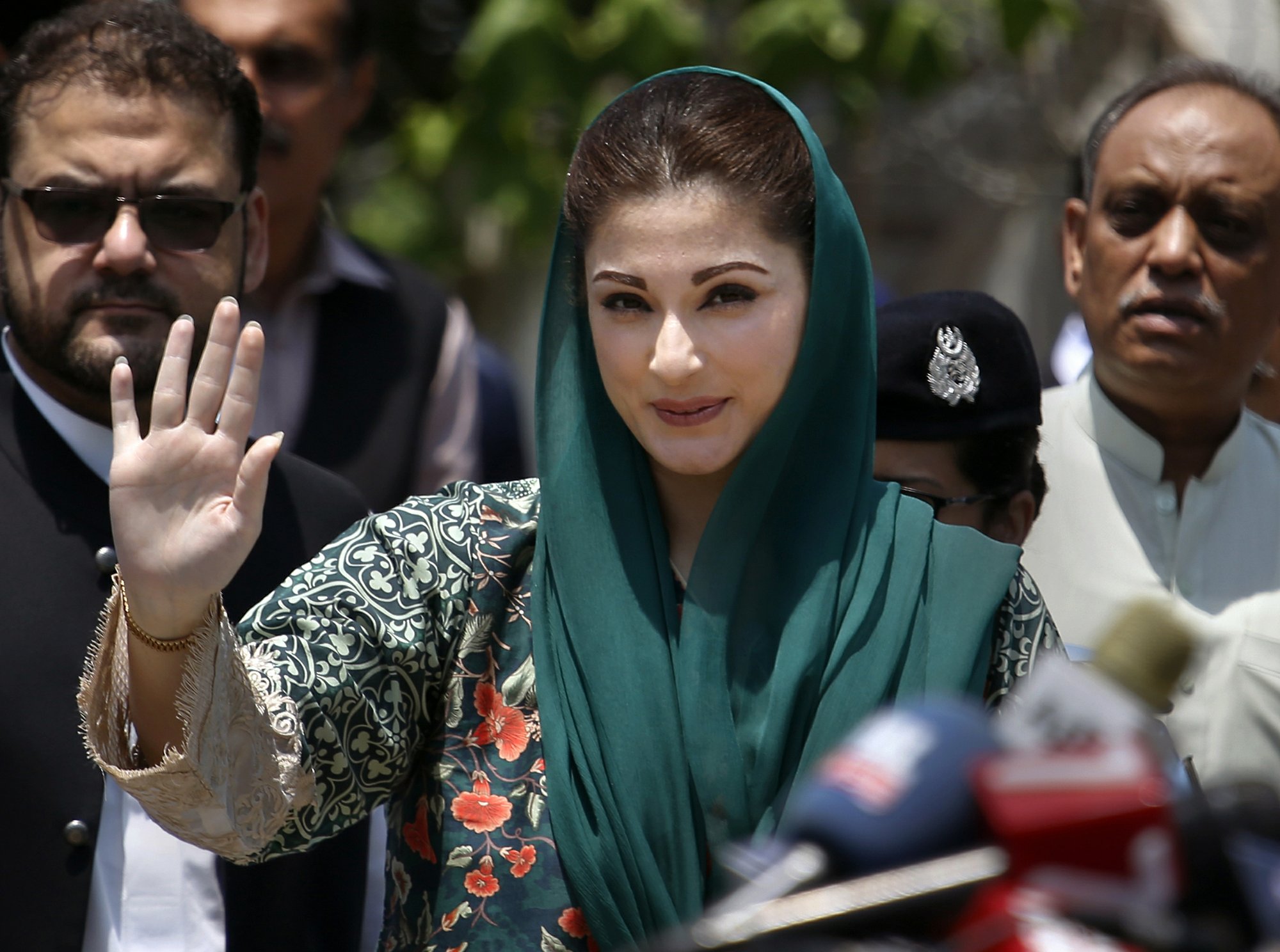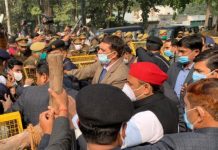
The interference of the Supreme Court in the routine administration work of a month old coalition government has forced PML leadership’s hands to seek fresh mandate. A report by Gopal Misra
With Maryam’s endorsement for immediate general elections in Pakistan, the one-month old coalition regime of Prime Minister Shahbaz Sharif is now inching towards the general elections.
With this daring decision, Maryam, the irrepressible daughter of the Nawaz Sharif, a three-time prime minister, and his political successor in the ruling Pakistan Muslim League-Noon (PML-N), also foils the ongoing conspiracies against the recently formed coalition government.
In Pakistan’s volatile politics, the army with its powerful secret police, Inter-Services Intelligence (ISI), had been grooming Imran Khan, a cricketer-turned politician, to become a proxy for the armed forces, which had been ruling the country during most of the years since it was partitioned from India in 1947. Khan, who was considered a novice in the cesspool of the country’s politics, appears to have successfully stumped two important institutions of the state, the army and the judiciary.
These two key branches of the government had helped him to trounce his formidable political rival, Nawaz Sharif, in 2018. The judiciary had convicted Sharif in trumped up unsubstantial charges, and the ISI had rigged the elections for ensuring majority to the Khan’s political outfit, Pakistan Tahreek-i-Insaf (PTI). The ISI had also lined up small political parties for ensuring Khan’s majority in the National Assembly. Under the pressure of the opposition parties, the ISI chief, Faize Hameed, was shifted to become the corps commander of Peshawar, but his cronies in the secret police continue to help Khan. The present Chief Justice of Pakistan, Umar Ata Bandial, was a part of the Supreme Court’s three-member bench, which had called Nawaz Sharif a crook in its judicial verdict, has now prevented new Prime Minister, Shahbaz Sharif government taking any decision regarding the postings and appointments in higher echelons of the National Accountability Bureau (NAB) and Federal Investigating Agency (FIA).
The ruling PML-N led coalition was keen to restore economic health of the country before going to the polls, but the mischief of the ISI’s proxies in media and suo-moto interference of the Supreme Court in the routine administration has prompted the leadership of the PML and its allies in the government to seek fresh mandate. Amidst these developments, the PML supremo, Nawaz Sharif, has sought clear assurance from the GHQ that after the elections the civilian government would be allowed the necessary freedom to serve the people.
Maryam Nawaz, who is now a key leader of the PML-N and holds the key portfolio of the Information Minister in the Federal Government, is now openly campaigning for new elections. During the past one week she has been addressing massive political rallies in different parts of the country preparing people for the new elections.
Since the constitution of the new government, the ousted Prime Minister, Imran Khan, and his political outfit, PTI, has intensified political activities, but the immediate provocation was the suo-moto cognizance by a five-member bench regarding the transfers and postings of the officials of the NAB and the FIA. The apex court also took note of the relaxation of the Exit Control Order benefitting thousands of people to leave the country without any hassle. This order was enacted empowering the government to include anyone in the ‘Exit Control List’, if a case or allegation in appropriating wealth at the cost of the state exchequer were framed.
It is now being widely discussed in various Pakistani social media platforms that Maryam’s statements reveal a belated realization regarding a well-planned agenda for entrapping the coalition government by weaving web jointly created by a section of the ISI loyal to its former chief, Faize Hameed, now the corps commander at Peshawar, and a few Supreme Court justices. In this power game, the role of the President Arif Alvi too is quite crucial. He had refused to give oath to Shabaz Sharif of the office of the Prime Minister under the pretext of being sick.
It appears to be a repeat of the happenings in 2014, when the then Prime Minister, Nawaz Sharif’s refusal to give extension to the army chief, Raheel Sharif, had finally led to his removal under some cooked up unsubstantial charges. It was then decided that instead of imposing the martial law, army should usher in a regime of proxies. In a bid to facilitate Imran Khan to become the prime minister, the ISI had embarked upon its plan for maligning the Sharif clan and many prominent leaders of the opposition parties. The ISI had also rigged the elections on an unprecedented scale to ensure his victory.
In an effort to save the image of the army among the electorate, the present army chief, Qamar Jawed Bajwa, had assured that the army and its ISI would be now politically neutral. The assurance is now being violated. Meanwhile, the erstwhile ISI chief, Faize Hameed, now the corps commander at Peshawar, who had played a key-role in ensuring majority to the PTI, has suddenly become politically active.
He has recently been to Kabul to strike a ‘peace deal’ with the Tahreek-i-Taliban Pakistan (TTP). It is not known whether he had obtained the permission of the civilian government in Islamabad before visiting Kabul and signing the peace agreement. It appears that he is in an assertive mood for seeking his elevation as the army chief, though he is the junior most in the panel of the officers to be considered for the coveted position.
Amidst these developments, a feverish competition for the new army chief post has begun following the indication of the present incumbent, General Qamar Jawed Bajwa, that he will not be seeking further extension of his tenure, when his terms finally expires in November this year. There are four top generals running for the coveted post are Lt Generals Sahir Shamshad Mirza, Azhar Abbas, Nauman Mahmood Raja and Faize Hamid.













